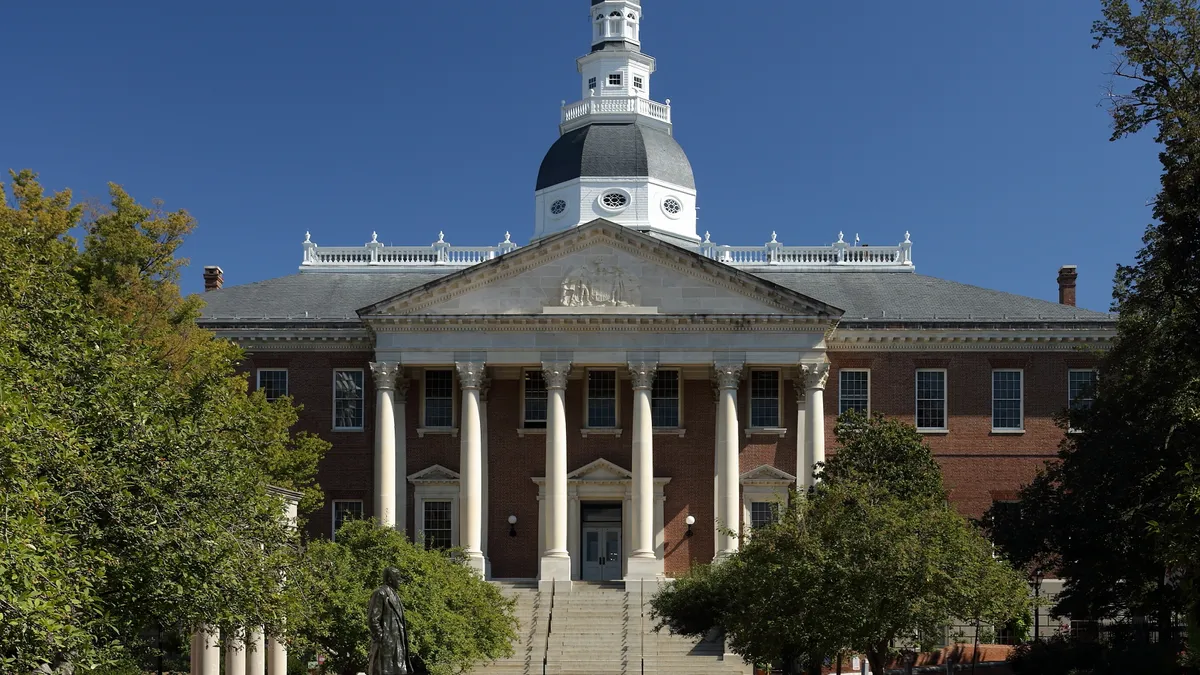The U.S. Department of Education frustrated consumer advocacy groups last year when it issued new federal rules concerning the state authorization of distance learning providers.
In the final regulations, the agency deviated from federal negotiators' initial consensus in at least one significant way: States participating in agreements allowing institutions based in other states to offer distance education for their students could no longer enforce certain laws.
States that are members of these reciprocity agreements can still administer "general-purpose" laws and regulations. But the new rules removed language that allowed them to also enforce laws that target a "subgroup of educational institutions." That could include online institutions, particularly for-profit schools, which have come under fire from states for defrauding students.
Every state but California is a member of the only national reciprocity agreement between states on distance learning authorization, the State Authorization Reciprocity Agreement (SARA). That means when the regulations take effect in July, most state laws pertaining to distance learning will be effectively unenforceable.
But one state, perhaps unwittingly, may provide an early test of the boundaries of the federal rules and the policies of NC-SARA, the organization that governs the reciprocity agreement.
NC-SARA claims a bill making its way through Maryland's legislature — designed to limit for-profit institutions —would put the state out of compliance with the coming federal regulations, as well as the group's standards.
Policy experts predict that if Maryland lawmakers pass the legislation as written, it may lead to legal scrutiny of NC-SARA and interstate compacts generally.
The Education Department might need to figure out if NC-SARA complies with the federal requirements that such reciprocity agreements can be used in place of traditional state authorization, Robert Shireman, a senior fellow at The Century Foundation, a left-leaning think tank, told Education Dive in an email.
Reciprocity agreements are designed to make it easier for institutions to offer distance learning nationwide by holding the participants to a set of common standards rather than requiring them to be separately authorized in each state.
"In short, it will be interesting," wrote Shireman, a noted critic of for-profit schools who has been involved in drafting legislation in California that targets those institutions.
Testing the limits
Key Maryland lawmakers from both sides of the aisle, as well as advocacy groups, have thrown their weight behind the bill, which attempts to close what critics have described as a longstanding loophole in higher education law on what's known as the 90/10 rule.
The rule requires at least 10% of for-profit institutions' revenue to come from sources other than Title IV funding. It intends to serve as a proxy for quality, in that institutions providing a valuable education should be able to generate sufficient income from sources other than the government.
But the cap doesn't apply to key military and veteran student benefits, and for-profits have been criticized for their emphasis on recruiting from this sector. Research has shown many for-profit institutions would fail the 90/10 test if military and veteran aid was included in the calculation.
Maryland's bill specifies that all federal funding — even military benefits — would count toward the 90/10 rule in the case of for-profit institutions that operate in the state. That includes for-profits based in other states that enroll Maryland residents in online education programs.
Shireman explained that the state could enforce the law for institutions with a brick-and-mortar presence in Maryland. Even out-of-state for-profits may not want to challenge the law and chance "the blemish of a violation," he added.
But NC-SARA said the current bill would violate the federal regulations as well as its near-identical policies. The group dictates that states cannot impose their distance education-specific rules and laws on out-of-state institutions offering programs within their borders. The state, for instance, can't try to limit a Tennessee-based institution from teaching a student who lives in Maryland if the college is otherwise in compliance with the state's general-purpose laws.
If the bill passes in its current form, which lacks an exemption for NC-SARA institutions, then Maryland could risk being removed as a member of the agreement, according to the group.
Under NC-SARA, regional interstate compacts represent states in the national agreement. The compact Maryland rolls up into, called the Southern Regional Education Board (SREB), would consider whether that state could still be a member of NC-SARA.
If Maryland were to enforce the bill, it would raise a number of legal questions, Debbie Cochrane, executive vice president of the The Institute for College Access & Success, told Education Dive in an interview. While it demonstrates that the state's legislators are attempting to help its students, she said, some of NC-SARA's measures, such as states not being able to impose restrictions specific to distance education, run counter to this consumer protection goal.
Asked if it had any concerns about the legislation, Maryland's Office of the Attorney General provided Education Dive with a copy of the written testimony, in favor of the legislation, that it gave to the state Senate's Education, Health and Environmental Affairs Committee.
The office urged the committee to pass the bill, writing that it "enhances consumer protection laws by closing a loophole that encourages for-profit colleges to exploit veterans."
The committee passed the bill in a 9-2 vote last month, and the Senate has since sent the legislation to the House of Delegates for review. The bill's lead sponsor did not respond to Education Dive's request for comment on Tuesday.
Another law targeting for-profit colleges took effect in Maryland last July. It forces some online institutions to disclose graduates' job placement rates and earnings. The lawmaker who sponsored that legislation told Inside Higher Ed that she was concerned its scope would be limited because of the new regulations.






















